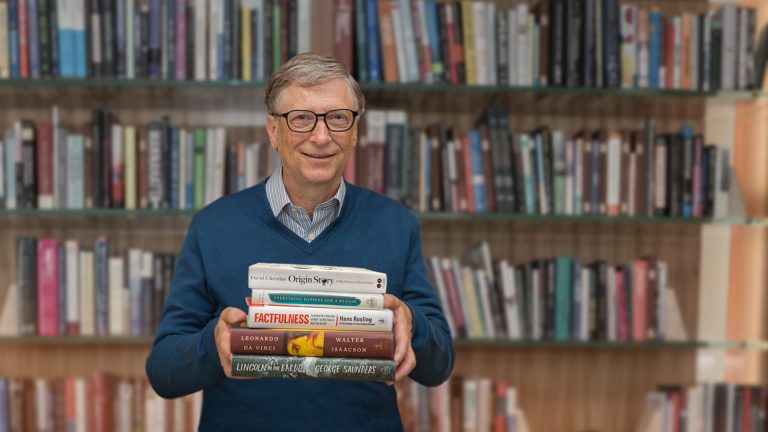Even Bill Gates thought school was boring as a kid.
While in middle school, Gates didn’t find learning “interesting,” he recently said on his “Unconfuse Me” podcast, in an episode featuring Khan Academy CEO Sal Khan.
“Early on in math, I was kind of lazy,” Gates, 67, said. “And a teacher in eighth grade said, you know, ‘How come you’re so lazy? You could be really good at this.’ I said, ‘But we’re not doing anything interesting.'”
That may have been an excuse, he added: “I kind of had this view that, the less effort you put in, the cooler you were.”
But the teacher spotted potential, and took the opportunity to encourage Gates to put some effort into his education. “He would give me books to read and help really push me quite a bit,” Gates said. “It made a huge difference that he sort of thought I was wasting my time. It changed my whole view on education.”
About 75% of teenagers report feeling bored in the classroom, adding that stress and tiredness also contribute to their negative outlooks, a 2020 Yale study found. Teachers can get students more engaged by pacing their lessons more effectively, Bryant University professor Michael Roberto wrote in a 2021 Harvard Business School blog post.
“Avoid long lectures, which are a very passive classroom activity, and instead choose activities that involve students,” Roberto wrote, adding that incorporating short videos, polling apps, group work and sharing are great ways to keep people’s attention.
Gates went on to develop his mathematics and coding skills in high school, before dropping out of Harvard University to co-found Microsoft in 1975. These days, a huge chunk of his philanthropy efforts revolve around access to education and quality of schooling, both in the U.S. and globally.
In the near future, artificial intelligence may be able to help push students the same way Gates’ eighth grade teacher did, he said — keeping kids with potential from not being noticed by busy, overworked instructors.
“I do think the AI will be like a great high school teacher who really marks your essay, and you go back and think, ‘OK, I need to step up there,'” Gates said.
DON’T MISS: Want to be smarter and more successful with your money, work & life? Sign up for our new newsletter!
Get CNBC’s free Warren Buffett Guide to Investing, which distills the billionaire’s No. 1 best piece of advice for regular investors, do’s and don’ts, and three key investing principles into a clear and simple guidebook.
Read the full article here









